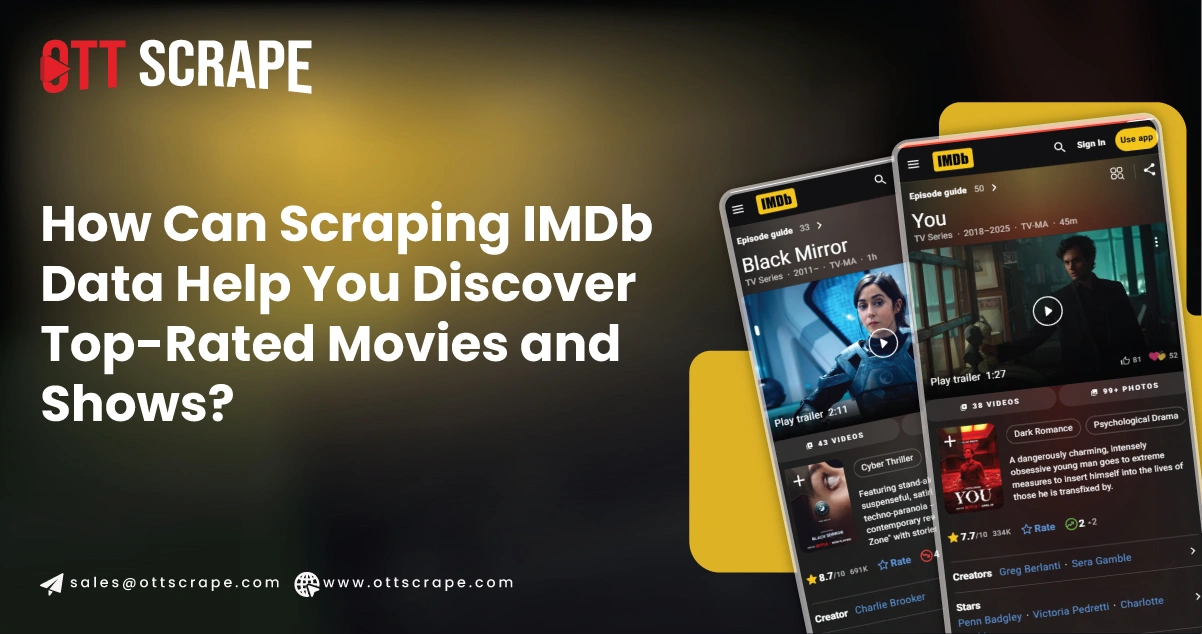
Introduction
The entertainment world is vast, with countless movies and TV shows vying for attention. IMDb, the Internet Movie Database, is a treasure trove of information, offering ratings, reviews, cast details, and more for millions of titles. By Scraping IMDb Data, enthusiasts, researchers, and developers can uncover insights into the best shows and movies, from top-rated classics to trending gems. This blog explores how IMDb data can be leveraged to discover exceptional content, highlighting key categories, popular titles, and trends that define cinematic and television excellence, with tools like a Python IMDb Scraper making the process efficient and accessible.
Why IMDb Data Matters?
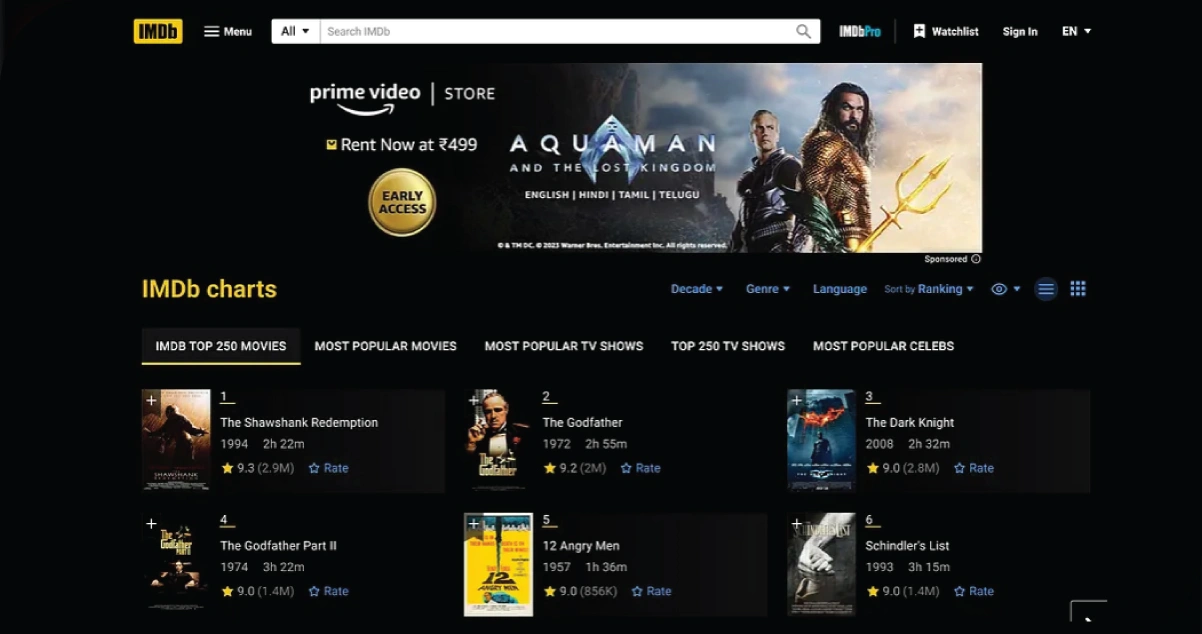
IMDb is a go-to platform for anyone seeking reliable information about films and series. It provides a comprehensive snapshot of a title's reception and impact with user-generated ratings, detailed metadata, and professional reviews. IMDb Web Scraping allows users to analyze patterns, such as what makes a show or movie stand out, which genres dominate, or how audience preferences evolve. Whether you're a filmmaker studying successful formulas or a viewer curating a watchlist, IMDb's structured data offers endless possibilities.
A Goldmine of Information
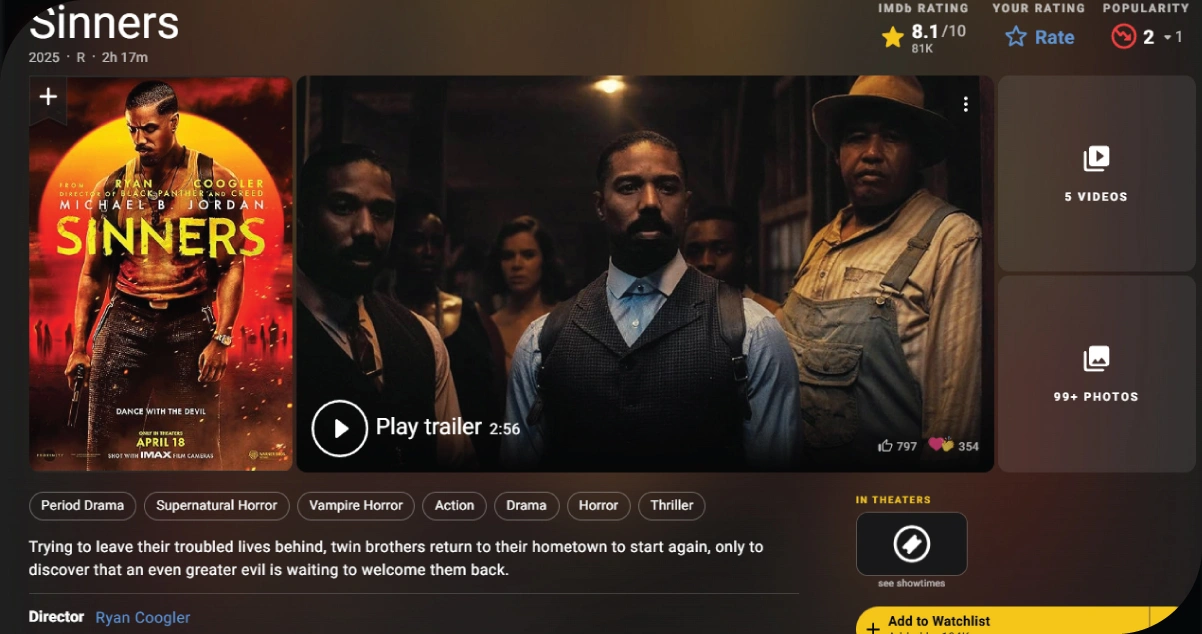
IMDb's database includes critical details like release dates, genres, runtimes, cast and crew, user ratings, and plot summaries. By extracting this data, you can create curated lists, compare titles, or predict future hits based on historical trends. For instance, analyzing the top 250 movies or TV shows can reveal what resonates with audiences, from storytelling techniques to production quality.
Applications of Scraped Data
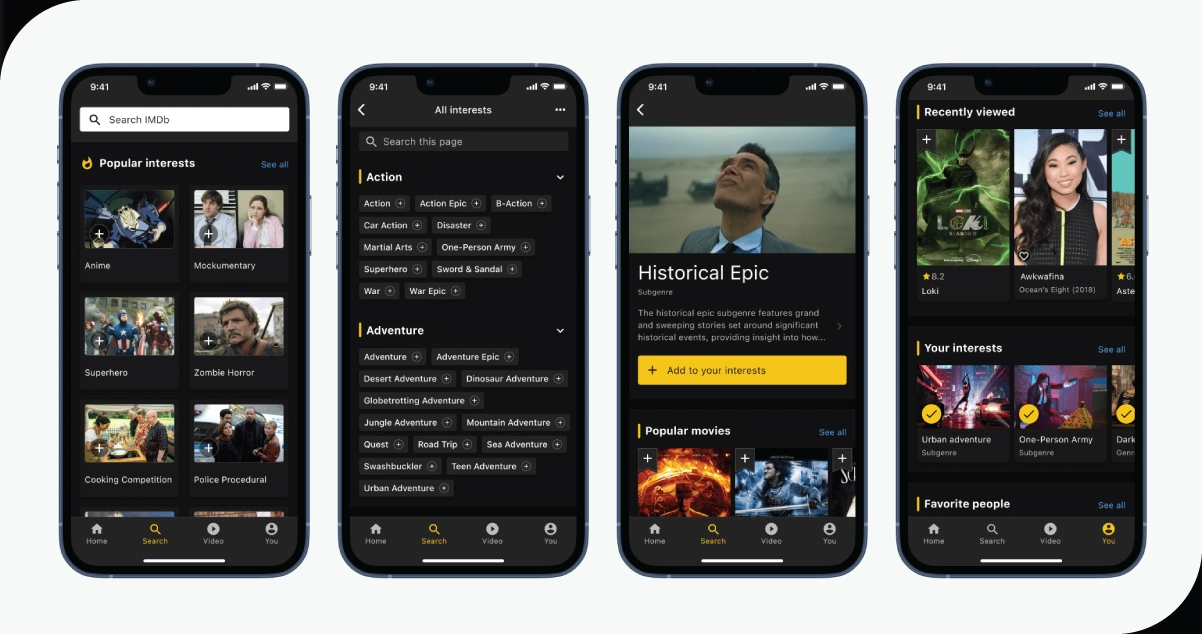
The applications of IMDb data are remarkably diverse, extending across various domains. Developers can leverage this data to build intelligent recommendation engines, while researchers use it to explore evolving cultural trends and media consumption patterns. Fans benefit too, uncovering underrated gems and curating personalized watchlists. Using tools like BeautifulSoup IMDb Data Scraping, users can extract valuable information such as genres, ratings, cast, and release dates, which can be visualized in dashboards or fed into AI-driven content suggestion systems. These insights go beyond surface-level browsing, offering a deeper understanding of viewer preferences and content success factors. When you Scrape IMDb Data, you turn a static dataset into a dynamic resource, powering apps, websites, or analytics tools that enhance the entertainment discovery process. Ultimately, scraping bridges the gap between raw data and real-world applications, reshaping how creators, analysts, and audiences interact with the world of film and television.
Exploring the Best Movies Through IMDb Data
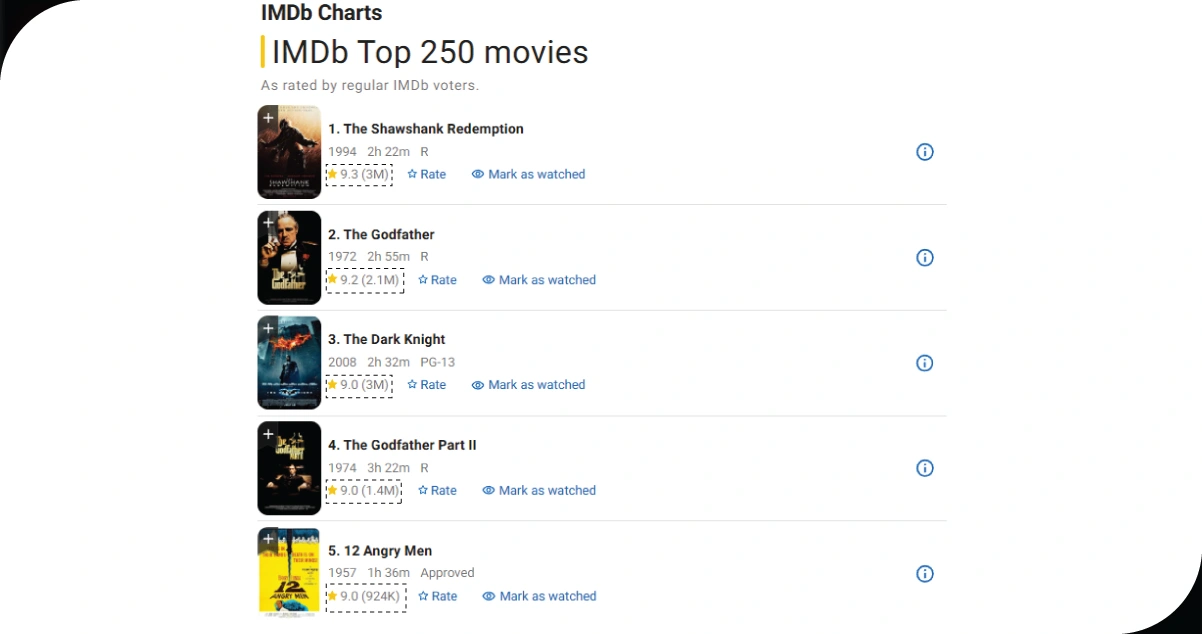
Movies are a cornerstone of IMDb's database, with millions of titles ranging from silent films to modern blockbusters. Scraping data from IMDb's top-rated or most popular movie lists can help identify cinematic masterpieces and understand what drives their success.
Top-Rated Movies: IMDb's Top 250 Movies list, ranked by user ratings, is a prime target for scraping. Films like The Shawshank Redemption (9.2/10), The Godfather (9.1/10), and Inception (8.8/10) consistently top this list, reflecting their universal acclaim. By extracting data on these films, you can analyze common traits:
- Directors: Visionaries like Christopher Nolan or Martin Scorsese often dominate.
- Genres: Dramas and thrillers frequently lead, with Schindler's List and Pulp Fiction as standout examples.
- Runtime: Many top films, like The Lord of the Rings: The Return of the King (201 minutes), lean toward epic lengths, suggesting audiences value immersive storytelling.
Scraping also reveals release years, showing that classics from the 1990s (Fight Club, Forrest Gump) coexist with modern hits like Parasite (2019), indicating timeless appeal.
Popular and Trending Movies: Beyond the Top 250, IMDb's "Most Popular Movies" chart highlights what's currently capturing attention. Scraping this data uncovers trends, such as the rise of superhero films (Spider-Man: No Way Home) or critically acclaimed indies (Everything Everywhere All At Once). By collecting details like box office performance, viewer demographics, and genre tags, you can map shifts in audience tastes, such as the growing popularity of diverse narratives or high-concept sci-fi.
Award-Winning Films: IMDb also catalogs award data, such as Oscar or Golden Globe winners. Scraping this subset can spotlight films like The Shape of Water (2017) or Nomadland (2020), which blend critical praise with audience appeal. Extracting nomination counts, categories won, and user ratings helps quantify a film's prestige and popularity, offering a balanced view of its impact.
Uncovering the Best TV Shows
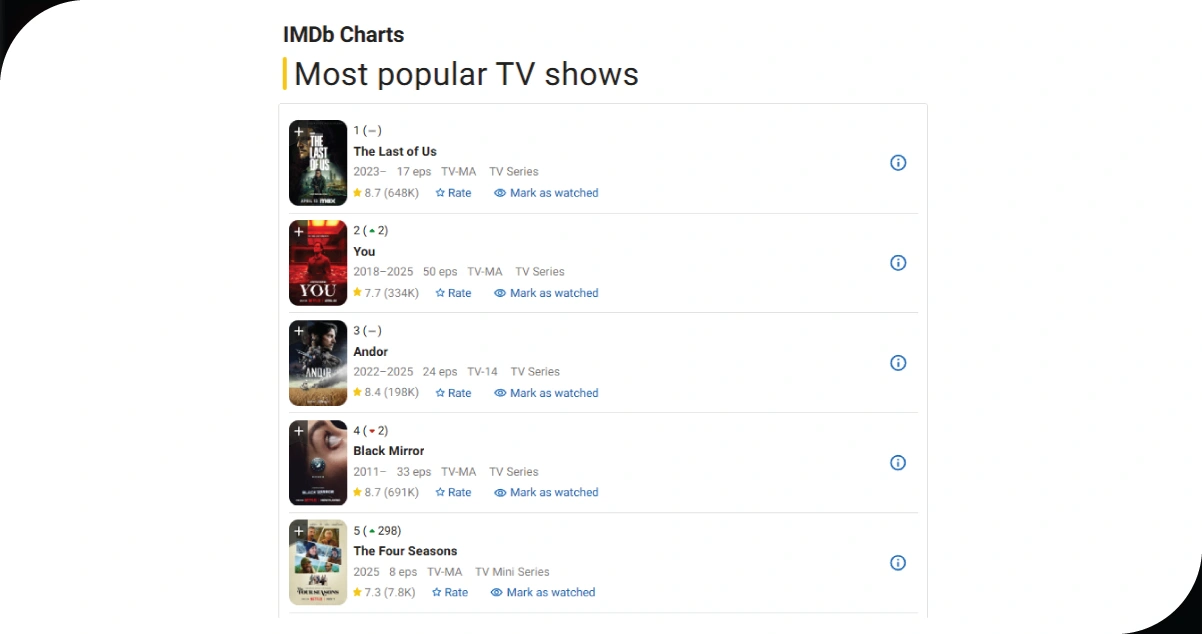
TV shows have surged in popularity, with streaming platforms fueling a golden age of serialized storytelling. IMDb's TV data, including its Top 250 TV Shows and trending series, is a rich source for discovering the best content.
Top-Rated Series: The IMDb Top 250 TV Shows list showcases series with exceptional viewer ratings. Breaking Bad (9.5/10), Chernobyl (9.3/10), and Game of Thrones (9.2/10) frequently lead, reflecting their gripping narratives and cultural impact. Scraping this data reveals:
- Episode Ratings: Shows like Breaking Bad have episodes (e.g., "Ozymandias," 10/10) that outshine entire series, highlighting peak moments.
- Genres: Dramas and thrillers dominate, but comedies like The Office (US, 8.9/10) also rank highly.
- Seasons: Long-running shows (Friends, 10 seasons) coexist with miniseries (Band of Brothers), showing variety in storytelling formats.
By extracting cast details, you can also identify actors like Bryan Cranston or Zendaya who elevate a series' prestige.
Trending Shows: IMDb's "Most Popular TV Shows" chart captures what's buzzing, from new releases to revived classics. Scraping this data highlights streaming hits like Stranger Things or The Bear, which blend nostalgia, innovation, and cultural relevance. Collecting viewer ratings, episode counts, and platform information (Netflix, HBO, etc.) helps track how streaming wars shape content popularity.
Award-Winning Series: Awards data for TV shows, such as Emmys or BAFTAs, points to critical darlings like Succession or The Crown. Scraping nominations, win counts, and user ratings shows how critical acclaim aligns with audience reception. For instance, Fleabag (8.7/10) balances Emmy wins with widespread fan love, making it a standout for analysis.
Genre Insights from IMDb Data
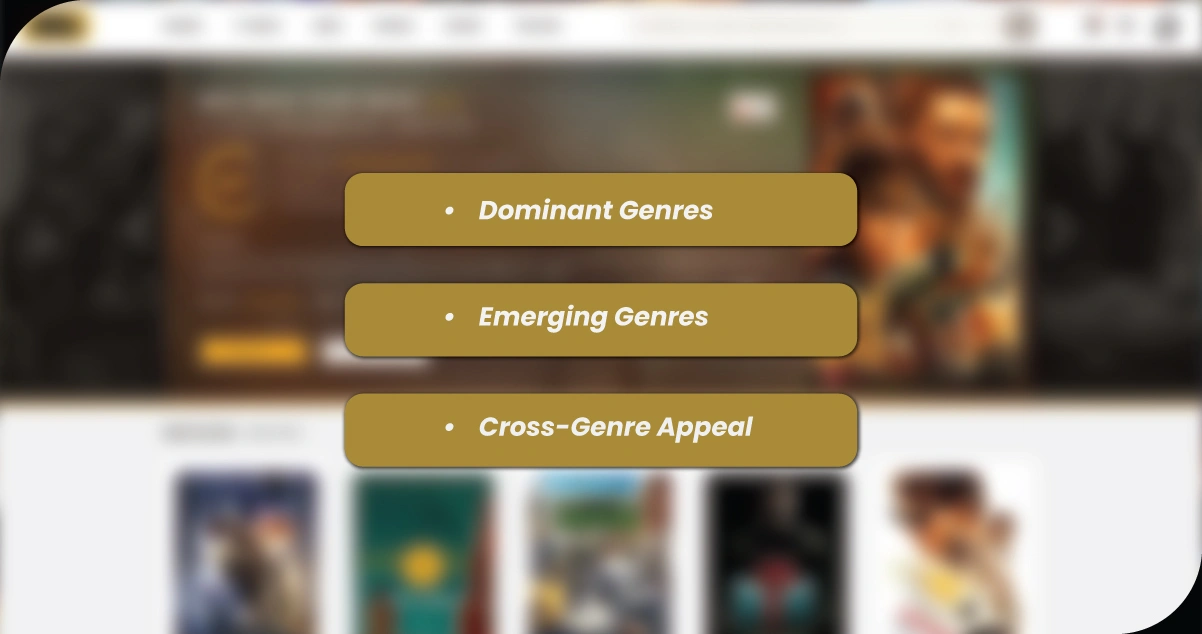
Genres are a key lens for understanding audience preferences. Scraping IMDb data by genre reveals which categories resonate most and how they evolve.
- Dominant Genres: Drama, thriller, and action consistently lead IMDb's top lists. Scraping genre tags shows that dramas like The Dark Knight or Mad Men often score highest, thanks to emotional depth and complex characters. Comedies (Parks and Recreation) and sci-fi (Interstellar) also perform strongly, reflecting diverse tastes.
- Emerging Genres: Data analysis highlights rising genres like psychological thrillers (Squid Game) and anthology series (Black Mirror). By scraping release years and ratings, you can track how these genres gain traction, often tied to societal trends like technology or global issues.
- Cross-Genre Appeal: Many top titles blend genres, such as The Grand Budapest Hotel (comedy-drama) or Stranger Things (sci-fi-horror). Scraping genre combinations and their ratings shows how hybrid storytelling captivates audiences, offering insights for creators and viewers alike.
Leveraging IMDb Data for Discovery
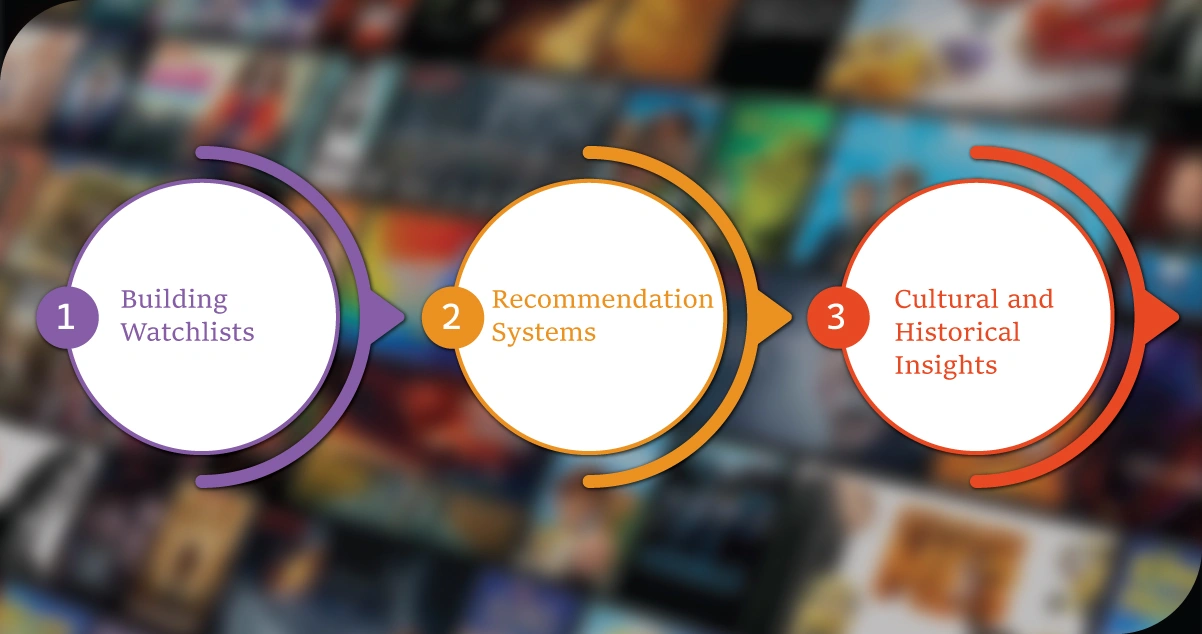
Scraped IMDb data isn't just for analysis—it's a tool for discovery. By organizing extracted data into curated lists or apps, users can find content tailored to their tastes.
- Building Watchlists: Scraping top-rated or genre-specific titles lets you create personalized watchlists. For example, a "Best Sci-Fi Movies" list might include Blade Runner 2049 and The Matrix, while a "Top Miniseries" list could feature Your Honor and The Undoing. Adding filters like runtime or release year enhances usability.
- Recommendation Systems: Developers can use scraped data to power recommendation engines. By analyzing user ratings, genres, and cast preferences, these systems suggest titles like Better Call Saul for Breaking Bad fans or La La Land for Whiplash lovers. Incorporating metadata like director or writer connections refines accuracy.
- Cultural and Historical Insights: For researchers, IMDb data offers a window into cultural shifts. Scraping release years, genres, and ratings can show how war films peaked during specific eras or how female-led stories (Barbie, Killing Eve) gained prominence, reflecting societal changes.
Future Possibilities with IMDb Data

As streaming and global cinema grow, IMDb's database will expand, offering even richer data for scraping. Future applications could include real-time trend trackers, AI-driven content predictors, or immersive apps that blend IMDb data with streaming APIs for seamless viewing. By tapping into this evolving resource, users can stay ahead of entertainment trends and uncover the next big hit.
How OTT Scrape Can Help You?
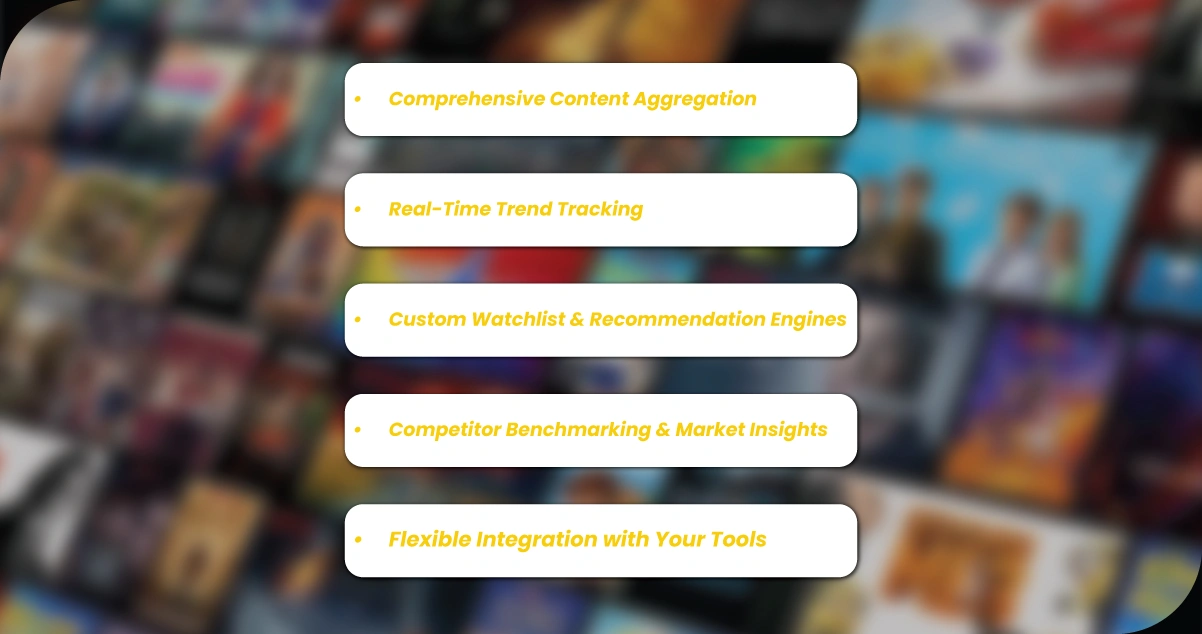
- Comprehensive Content Aggregation: We extract detailed data from top OTT platforms—including titles, genres, ratings, release dates, cast, and availability—enabling you to build rich, centralized content libraries.
- Real-Time Trend Tracking: Stay updated with trending shows, new releases, and viewer ratings through real-time data scraping, helping you respond quickly to shifting audience interests.
- Custom Watchlist & Recommendation Engines: Use scraped OTT data to power personalized watchlists and AI-driven recommendation systems based on viewing history, genre preferences, and popularity.
- Competitor Benchmarking & Market Insights: Analyze competing OTT platforms to understand their top-performing content, pricing models, and user engagement strategies using clean, structured data.
- Flexible Integration with Your Tools: Our OTT scraping services offer APIs and export formats (JSON, CSV, Excel) that easily integrate into your dashboards, apps, or analytics workflows.
Conclusion
Scraping IMDb data unlocks valuable insights into top shows and films, helping users explore everything from timeless classics to current hits. Through Extraction Movies Data, enthusiasts and developers can analyze ratings, genres, trends, and audience preferences to uncover what truly resonates with viewers. Whether building a personalized recommendation system, curating a dynamic watchlist, or studying media impact, IMDb Shows & Movies Scraping Data provides the structured information needed to dive deep into cinematic and television content. It transforms raw metadata into meaningful insights, enhancing how we discover, understand, and engage with the entertainment world.
Embrace the potential of OTT Scrape to unlock these insights and stay ahead in the competitive world of streaming!
